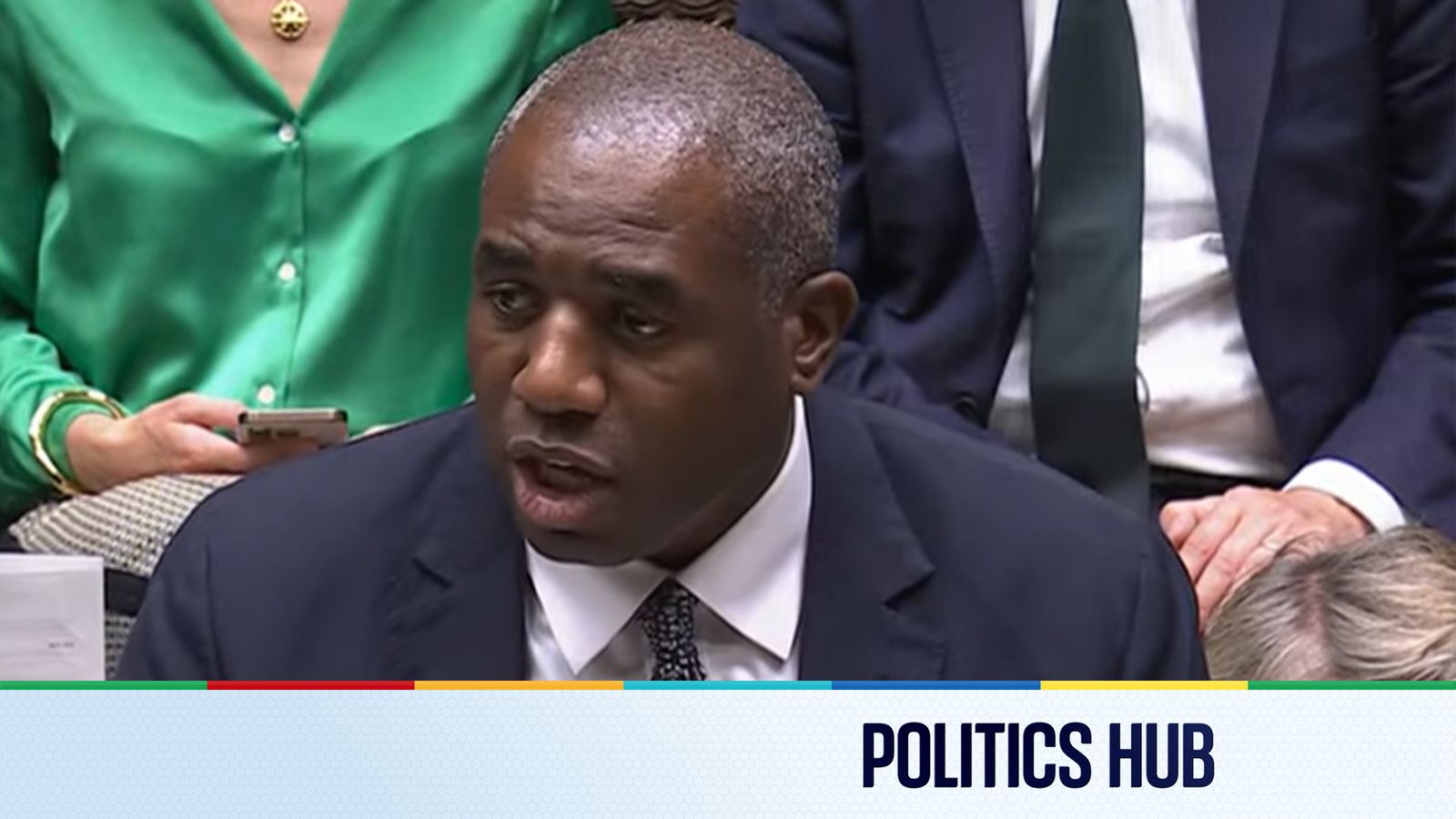Diplomatic Tensions Escalate: UK Monitors Middle Eastern Developments Amid US-Iran Conflict

In a rapidly evolving geopolitical landscape, the United Kingdom finds itself navigating a complex web of international relations as tensions escalate in the Middle East. British nationals have been evacuated from Israel on an RAF flight, a move announced by Foreign Secretary David Lammy, as the region grapples with heightened security concerns.
The situation has been further complicated by recent developments in Qatar, where British citizens have been advised to shelter in place following a US security warning. Lammy, addressing inquiries from shadow foreign secretary Priti Patel, emphasized that the situation is under 'close review' and hinted at the possibility of further updates in the coming days. This cautious stance underscores the UK’s delicate position as it seeks to balance its diplomatic ties with both the United States and the broader international community.
Patel's probing questions regarding the US raid on Iran highlighted the opacity surrounding the UK's stance on the legality of the attack. Lammy refrained from disclosing whether the UK deemed the operation legal or what legal counsel had been sought. This reticence reflects the sensitive nature of the UK's diplomatic engagements and its strategic decision to maintain a degree of ambiguity in its public statements.
Further complicating matters, Lammy confirmed that the UK was not solicited for the use of Diego Garcia or any other base in the operation, though it was informed of the US president's intentions beforehand. This revelation points to the intricate dynamics of military cooperation and the UK's role within the broader framework of Western alliances.
Lammy's recent visit to the United States underscores the importance of direct dialogue with the Trump administration regarding the Iranian situation. However, his subsequent summit with Iran, alongside France, Germany, and the EU in Geneva, was deemed 'not successful' as Tehran remained unyielding in returning to negotiations. This diplomatic impasse highlights the challenges faced by Western powers in engaging with Iran and the broader implications for regional stability.
As the UK continues to monitor these developments, the international community watches closely, aware that the outcomes of these diplomatic maneuvers could have far-reaching consequences for global security and political alliances.
🔮 Fortellr Predicts
Confidence: 78%
The ongoing situation with the evacuation of British nationals from Israel and the security alerts in Qatar is likely to escalate due to interconnected geopolitical strains, particularly involving Iran, Israel, and the US. Initially, the British government will focus on safeguarding its citizens and maximizing diplomatic efforts to de-escalate potential threats to its nationals in the region. There will be increased diplomatic activity from the UK, EU, and other global powers aiming to mediate between the involved parties. Iran's non-participation in Geneva talks highlights a significant diplomatic impasse, reflecting its sustained resistance to Western pressure on curbing its military capabilities and nuclear ambitions. Israel, bolstered by recent US actions, will likely continue exercising military options against perceived threats from Iran and its proxies, further heightening tensions. This will necessitate an adaptive response from Iran, including potential retaliatory measures and diplomatic maneuvering to rally regional and international support against perceived aggressions. The US, under Trump's decisive leadership, will maintain a strong military posture while navigating the complex regional dynamics within a framework that prioritizes national security and strategic alliances. The interconnected nature of these developments will likely result in broader international discourse on the sustainability and legality of unilateral military actions, the effectiveness of diplomatic channels, and the overarching need for a robust international framework to address such crises.